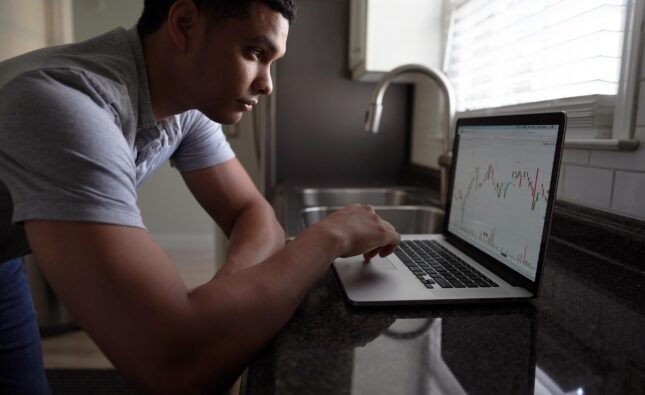If you want to invest well in the fast-paced world of stock markets, you need to know what an active trading account is and what a dormant trading account is. Every investor should know what a trading account is, how it operates, and how not using it could make it difficult to get to their investments. This keeps the value of their portfolio safe and makes sure they are following the law.
What is a trading account?
With the help of an authorized broker, people can open a trading account on the stock exchange and buy and sell stocks, bonds, and derivatives. The trading account is like a middleman between the demat account and the bank. It does a great job at keeping track of all the orders and transactions. When an investor buys or sells shares, the trading account makes sure that the shares and money move. This speeds up trade. The account must be active, follow KYC rules, and be verified on a regular basis to ensure sure trading happens successfully.
Accounts for Trading That Is Going On
Active trading accounts are accounts that trade on a regular basis. People who purchase and sell stocks, commodities, or derivatives on a regular basis keep their accounts in good standing. With an active account, you may trade right immediately, obtain real-time market data, manage your portfolio, and quickly take advantage of investment possibilities.
- Exchanges take care of orders right away.
- Tools for research and commerce that are fully available
- Quick and simple ways to send money and make deals
By being active, investors can take advantage of developments in the market, and brokers may give those with active accounts more tools to help them understand the market.
Risks and how to get trading accounts that aren’t being used back up and running
A trading account is inactive if you haven’t utilized it in a certain amount of time, usually between 12 and 24 months. Different brokers have different time frames. Regulators and brokers call it dormant to keep the account safe from fraud, misuse, and illegal access. During this time, there are no trades or investments, such deposits or withdrawals. This is when dormancy starts.
Risks of Being Dormant:
- Limited access: You can’t buy or sell anything until your account is active again.
- Regulators and brokers who want to combat identity theft and other crimes are more likely to detect inactive accounts and use them without permission.
Account holders must put in fresh KYC documents and follow the instructions of their broker or demat participant in order to reactivate their accounts.
To reactivate a trading account that hasn’t been used in a while, you need to send in new personal and financial documents, prove who you are, and follow your broker’s instructions, either online or in person.
A minor demat account is quite crucial.
A minor demat account is a type of demat account that only those who are 17 years old or younger can open. Until the child turns 18, a legal guardian, like a parent or a person chosen by the court, is in charge of the account. You can’t trade on small demat accounts; you can only give gifts or do business that doesn’t include trading. When you turn 18, the account becomes a regular trading and demat account with KYC and compliance improvements.
Here are some things you should know regarding a minor’s demat account:
- Guardian looks after things till the child is old enough.
- Accounts that only one person can own; no one else can own them.
- After the majority, full trade rights will be awarded.
Table: Active vs Dormant Trading Account
| Feature | Active Trading Account | Dormant Trading Account |
| Trading Activity | Frequent trades, orders, updates | No activity for 12/24+ months |
| Access to Funds/Securities | Immediate access | Restricted until reactivation |
| Security Risk | Lower (active monitoring) | Higher (risk of misuse/fraud) |
| KYC Status | Up-to-date, verified | Requires update for reactivation |
| Investment Opportunity | Respond quickly to market | Missed opportunities |
Conclusion
You need to know what a trading account is and why it’s crucial to maintain it open if you want to always be able to get to the capital markets. People who handle kids’ accounts also need to know the restrictions and how to make the transfer. Following broker rules, checking in often, and getting updates on time are all things that assist keep your money safe and make sure deals happen fast.













